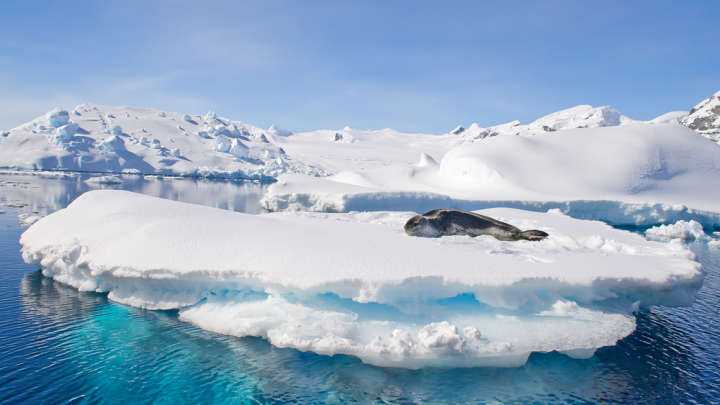Mainland Antarctica Just Reached Its Warmest Temperature Ever Recorded
Antarctica’s main continental landmass, home to vast ice sheets, penguins, and the South Pole, just reached a worryingly balmy 18.3°C (64.9°F), according to researchers at the Argentinian research base Esperanza. If verified, the temperature will be the highest ever recorded on mainland Antarctica.
The temperature was recorded on February 6, 2020, beating the previous high of 17.5°C (63.5°F) recorded on March 24, 2015. The new temperature is now set to be officially verified by the World Meteorological Organization (WMO).
“Everything we have seen thus far indicates a likely legitimate record but we will of course begin a formal evaluation of the record once we have full data from [Argentina’s national meteorological service] and on the meteorological conditions surrounding the event,” said WMO Weather and Climate Extremes rapporteur Randall Cerveny in a statement.
“The record appears to be likely associated (in the short term) with what we call a regional ‘foehn’ event over the area: a rapid warming of air coming down a slope/mountain. Verification of this maximum temperature record is important because it helps us to build up a picture of the weather and climate in one of Earth’s final frontiers.”
The temperature was recorded on the Antarctic Peninsula, the northwestern tip of Antarctica that juts out towards South America. According to the WMO, the Peninsula is one of the fastest-warming regions on the planet, heating up by 3°C (5.4°F) in just half a century.
While 18.3°C is the warmest temperature recorded on the Antarctic mainland, it is the second-warmest recorded in the entire Antarctic region. The area is home to a number of islands, one of which, Signy Island, reached 19.8°C (67.6°F) in January 1982.
The average temperature of Antarctica varies across the icy continent, from -10°C (14°F) on the coast to a chilling -60°C (-76°F) inland. The newly recorded 18.3°C is reminiscent of temperatures in countries like the UK, a worrying sign that planet-warming human activity is reshaping the climate of Earth’s frozen south.
The vast Antarctic ice sheet holds 90 percent of the freshwater on Earth, and it’s melting fast. Between 1979 and 2017, the amount of ice lost from the sheet each year increased six-fold. With so much water trapped in the ice sheet, rapid melting will have dramatic effects on global sea levels, impacting coastal communities around the world. If the entire ice sheet were to melt, sea levels would rise by 60 meters (197 feet).
It is our responsibility to mitigate the climate crisis and politicians must act now to drastically reduce the carbon emissions their nations pump into the atmosphere. Losing Antarctica’s pristine ice would not only wreak havoc on humans by increasing flooding of coastal areas, but it could drive the continent’s unique species, such as the majestic emperor penguin, to extinction too.



